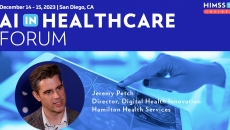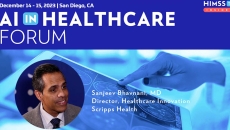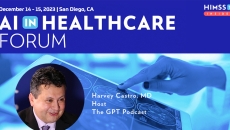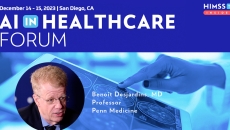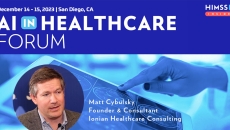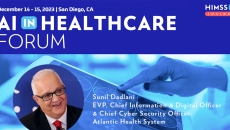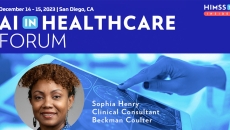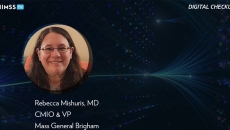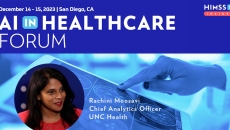Artificial Intelligence
Hamilton Health Sciences is focused on clinical AI at the bedside as a powerful tool, as long as it's in partnership with clinicians, says Jeremy Petch, director of digital health innovation.
The transition over the last 10 years has moved from the development of AI and ML tools to a focus on how to get them used, says Dr. Sanjeev Bhavnani of Scripps Health.
Artificial intelligence will bring down costs and lead to cheaper drugs and personalized medicine, says Harvey Castro, a practicing ER physician and host of The GPT Podcast.
While hackers can remove information in five hours, it takes humans 280 days to detect the fact. Organizations need something faster and awake 24 hours a day, says Dr. Benoit Desjardins, Penn Medicine professor of radiology.
AI adds a capability to identify when interventions are necessary and to get an idea of the health and needs of a population, says Matt Cybulsky, founder of Ionian Healthcare Consulting.
"Finding out the patient is high-risk after they are diagnosed with cancer is too late," says Dr. Eric Brown, surgical oncologist and breast multidisciplinary team co-lead.
At HIMSS AI in Healthcare Forum, one session about Atlantic Health System's AI rollout focused on a watershed moment of smart machines and humans integrating, says Sunil Dadlani, EVP and chief information and digital officer.
Beckman Coulter uses TriageGo, AI and machine learning to recommend triage acuity, says Sophia Henry, clinical consultant for the company.
GenAI can help solve healthcare challenges, but at some point it becomes hard to explain what it's doing, says Dr. Rebecca G. Mishuris, CMIO and VP at Mass General Brigham.
UNC Health first made investments on AI in 2016, with the early development work focused on care redesign, algorithms and sepsis, says University of North Carolina Health Chief Analytics Officer Rachini Moosavi.
